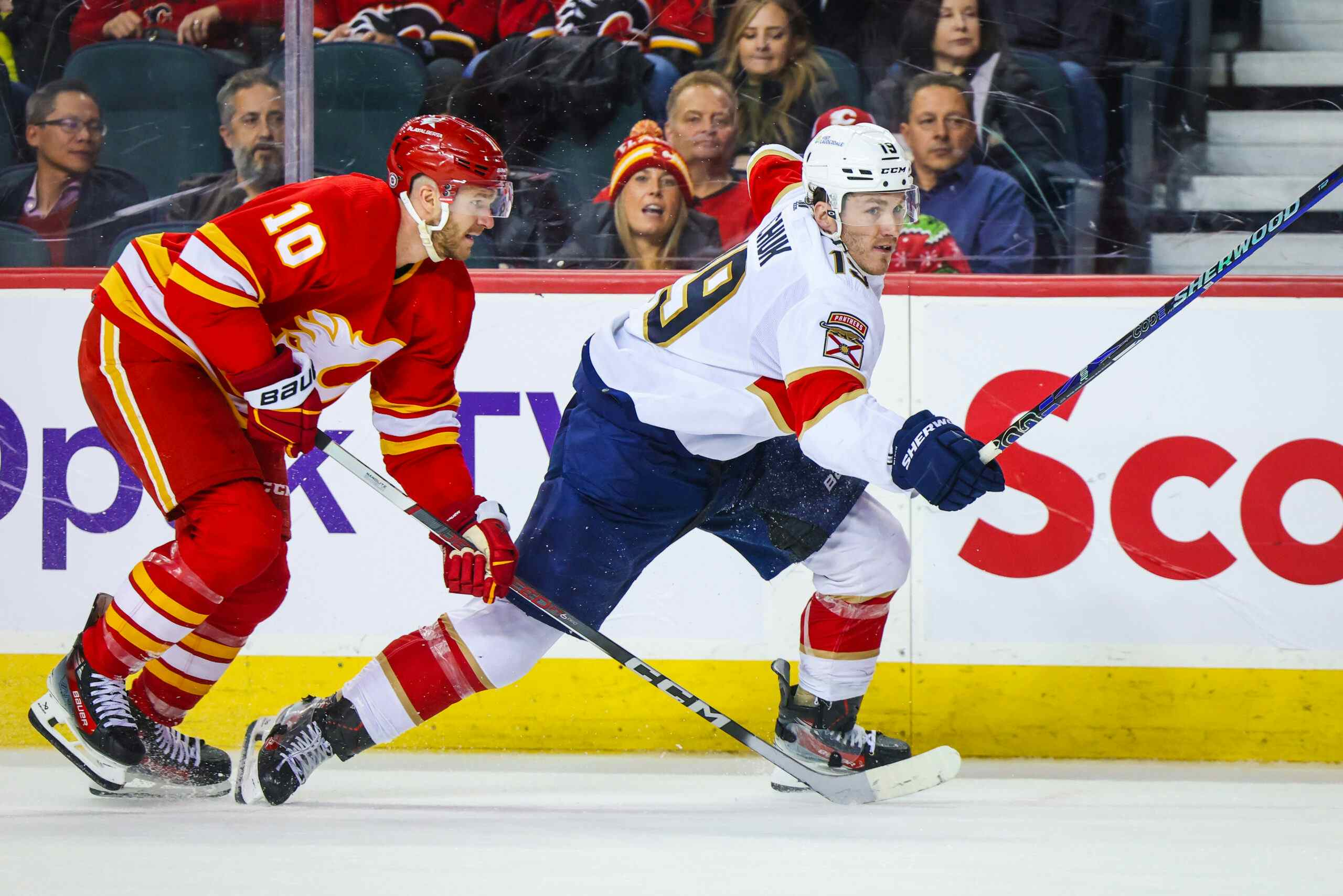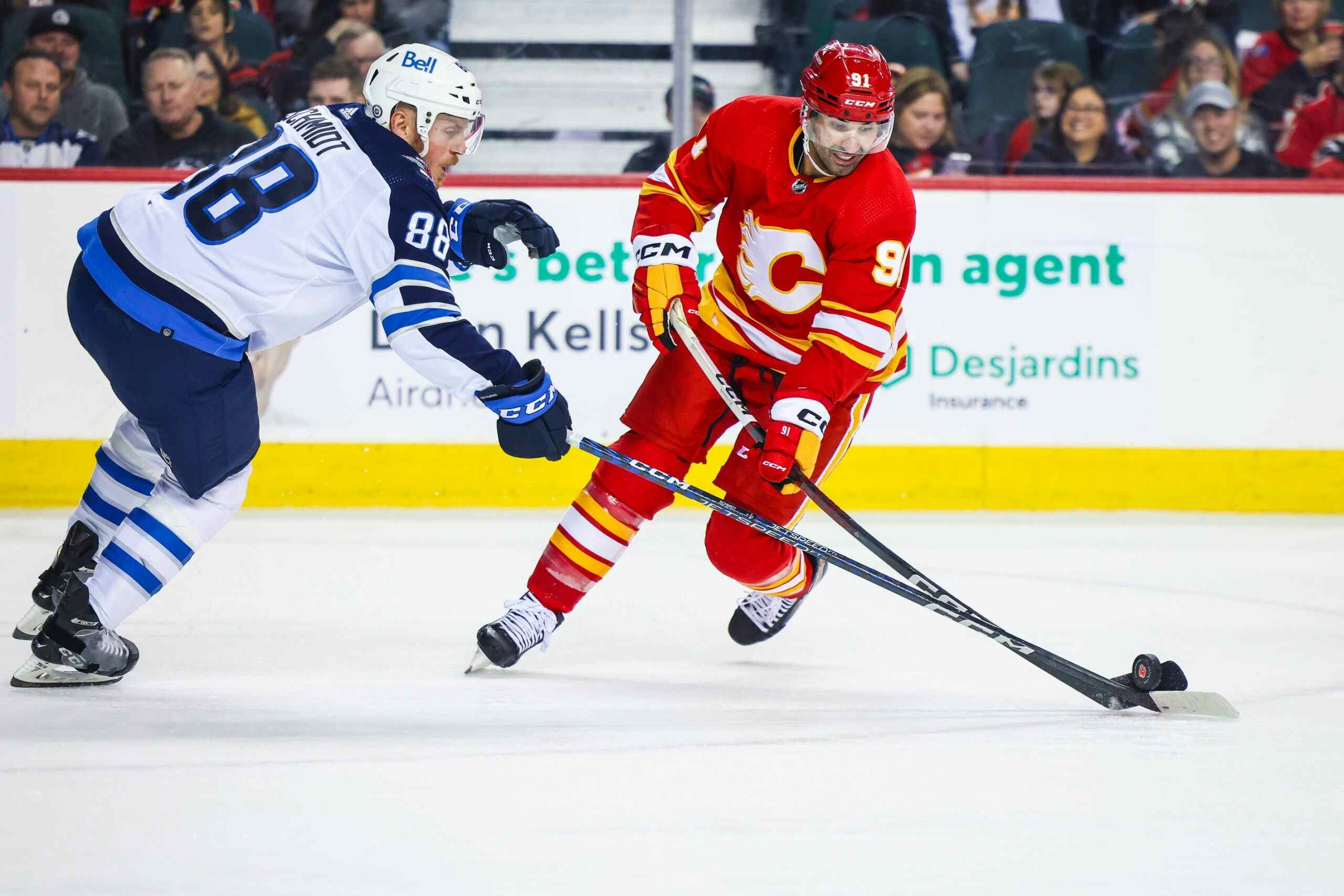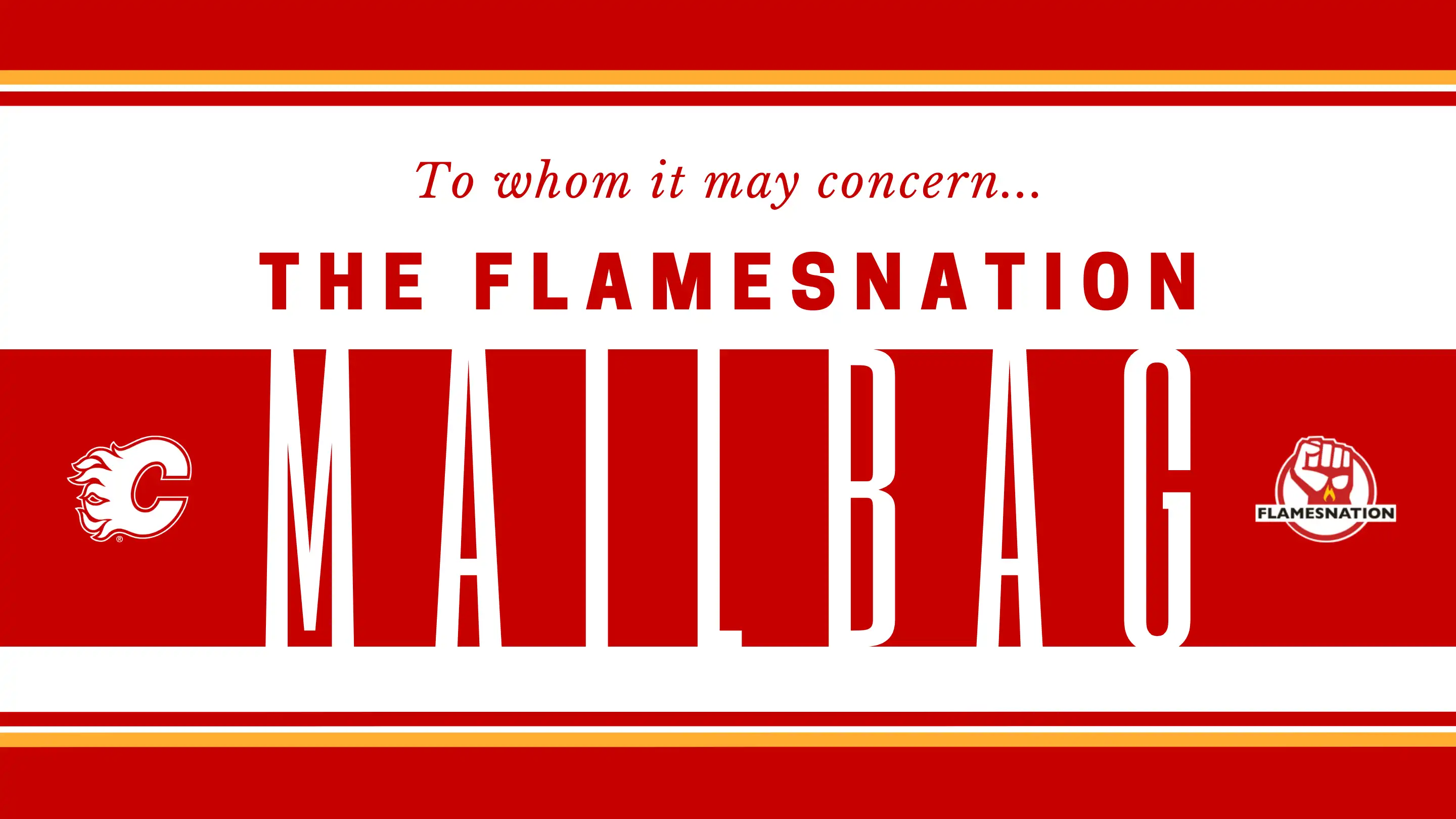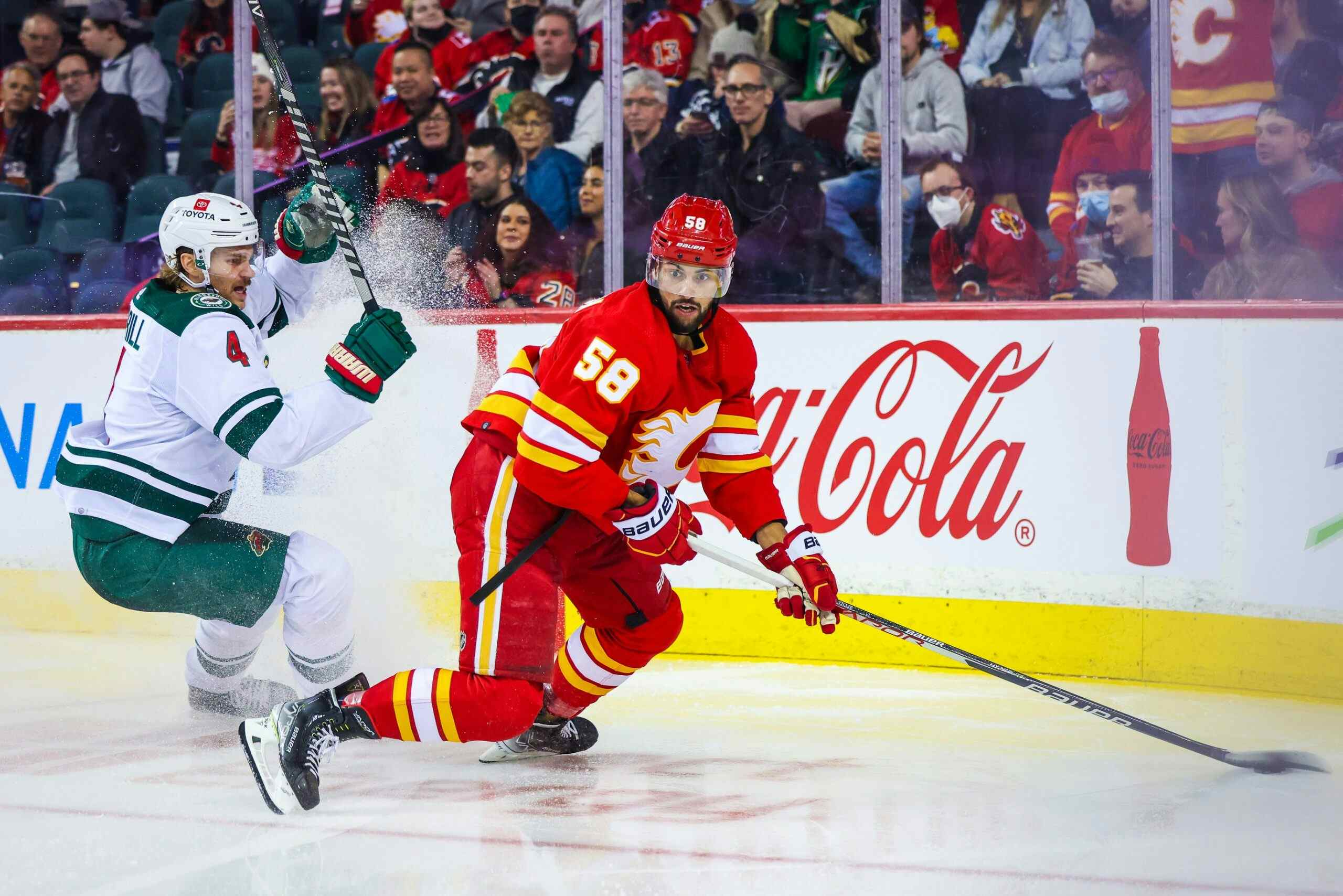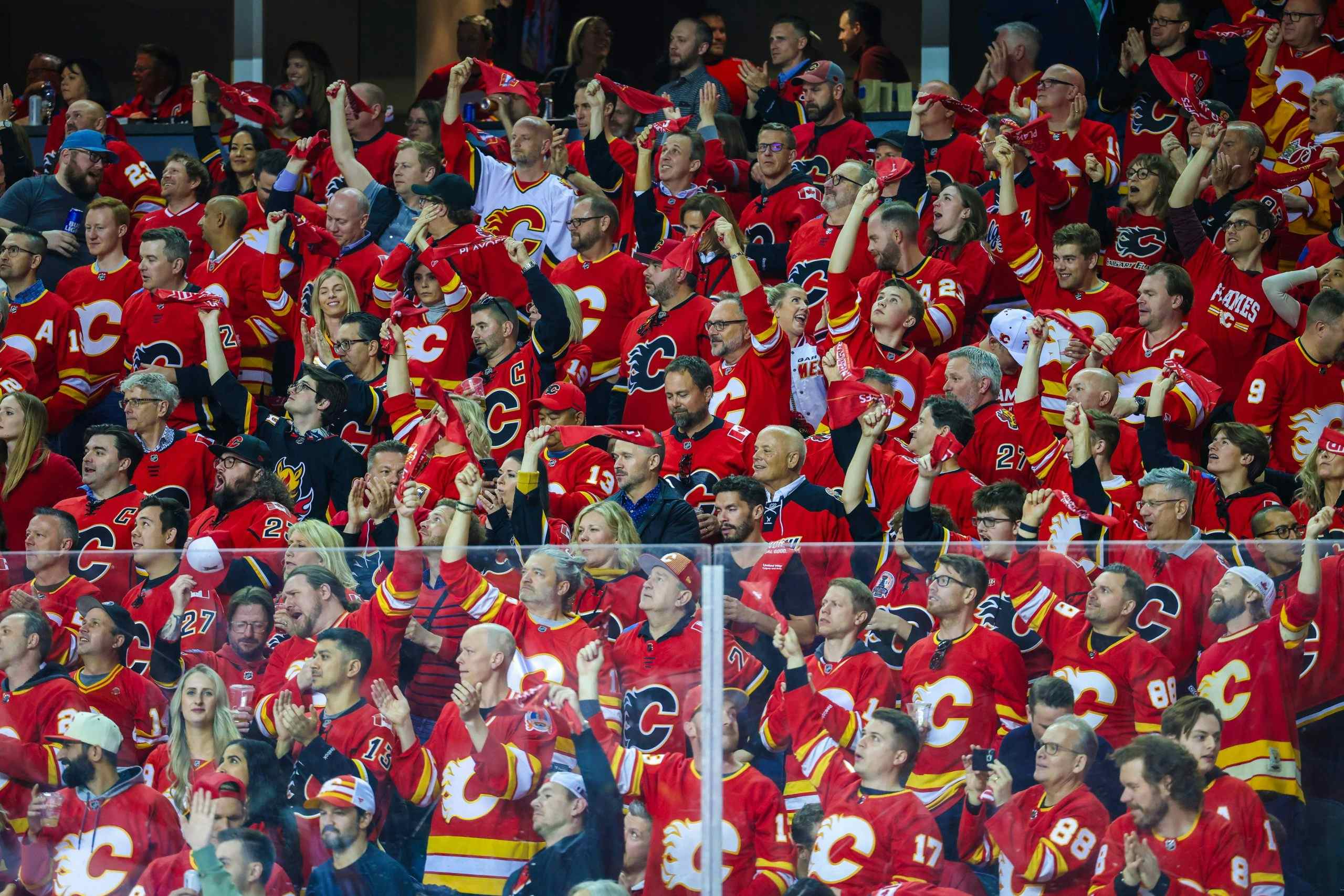Ducks 5, Flames 4 (OT) post-game embers: What is there to say?
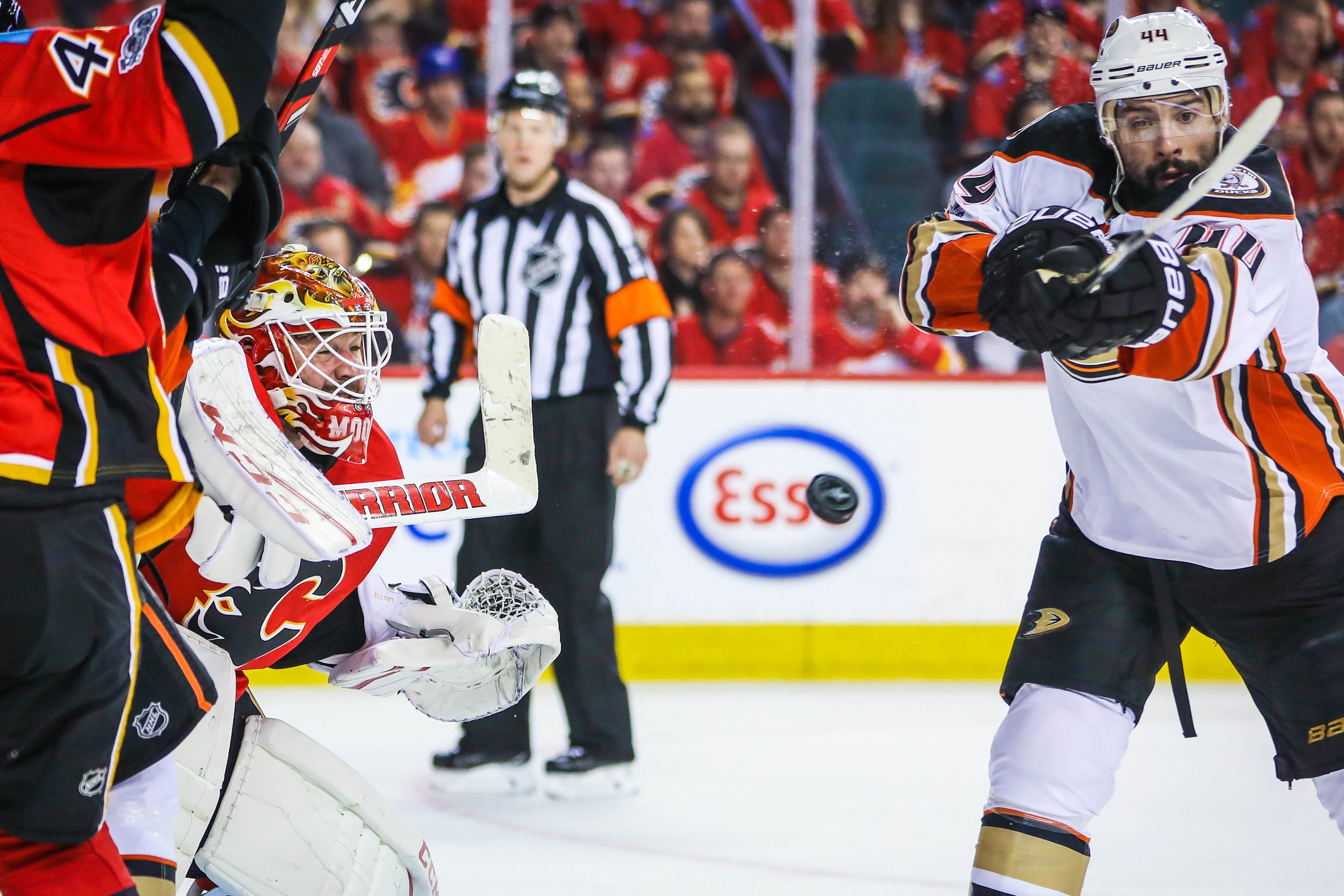
By Ari Yanover
7 years agoThree games, the Flames have been the better team.
Three times, they’ve lost.
Well, let’s have at ’em
I do not blame the officials. I go out of my way to avoid blaming the officials. And really, how can you when the Flames didn’t have to kill a single penalty, and got five powerplays of their own? It looked like the tide had turned on that front, at least for a home game.
And sure, it was penalties that hurt them in the first two games. But the possibility of killing them always exists. Ultimately, it’s up to the team to do just that – and they can control their own play on the ice.
But between calling off Alex Chiasson’s goal in Game 2, and deciding Nate Thompson’s goal in Game 3 wasn’t the result of a high stick – only the officials can control that (by calling the plays in favour of the Ducks on the ice first, and by the war room essentially shrugging after minutes-long reviews to go with them). The only last gasp option after all that would be to challenge the call, but what would be the point of that after such a long review had already taken place?
That’s where you can’t win. Penalties get called all the time, penalties get missed all the time – but video review is supposed to get things right.
Video review that would have the Flames at least in overtime in Game 2, and winning Game 3, instead playing directly into the opposition’s hands – and giving them two wins instead. You go back two years, to Sam Bennett’s non-goal in a different Game 3 against the Ducks, and it’s good enough to leave you feeling defeated – and you’re just a fan. Your actions don’t mean anything in this space.
So I can’t imagine what calls like that, in particular, would do to the players.
As I’ve seen it put like this time and time again elsewhere: you can beat the Ducks. But you can’t beat the Ducks AND the officials.
Where’d Game 1 Brian Elliott go?
Game 1 was a display of excellent goaltending from both goalies, with Brian Elliott ultimately the better over his counterpart John Gibson despite the loss. Gibson was serving up rebounds the Flames didn’t capitalize on, while Elliott kept his team solidly in it, and couldn’t be blamed for anything that went past him.
Pucks are still bouncing off of Elliott’s defencemen and in, but the stellar play from Game 1 has been gone since the puck dropped in Game 2. The latest two losses would be fair to pin on him. Had he been sharper to start Game 2, the Ducks don’t jump out to that early lead, and then Flames maybe take it. And had he been able to do literally anything in Game 3 – especially after being gifted a three-goal lead – then the Flames aren’t in a 3-0 hole.
Elliott absolutely takes the blame on this one. He himself has admitted as much. He faced 27 shots; he let in five goals. Gibson faced 16 shots; he let in four goals. Jonathan Bernier faced 16 shots and stopped all of them.
That leaves a question for both teams: who starts the next game? Do the Ducks go back to Gibson? And do the Flames go back to Elliott, even after the past two performances?
The Ducks can afford to guess wrong. The Flames can’t. And before deciding, remember: the last time Johnson posted a save percentage above .900 was Feb. 24, and he hasn’t played a full game since March 23.
Not that the skaters are blameless
In the first period, the Flames had a 5v5 CF of 58.33%.
In the second period, it was 55.56%.
In the third period, 42.86%.
They had a two-goal lead – what should have been a three-goal lead, were it not for that late-period collapse – and couldn’t hold it. That’s what this comes down to. Was Elliott poor? Yes. Would he have had the chance to be poor if the team in front of him had played better? No. The Flames stopped doing what they had been so successful in doing the first two periods, the Ducks took over, and that cost them.
As if their end to the second period wasn’t a strong enough hint that they wouldn’t survive if they kept playing that way, they had to go and test the theory.
It’s hard to maintain that pace for an entire game. And if you’re so inclined, you can give credit to the Ducks for pushing back and forcing it to be a game again. They had a role in their win, too; it wasn’t just the Flames giving away another game as a collective unit.
Except, you know… it kind of was.
And at even strength…
The Ducks were undisciplined. They committed a number of infractions in the game – whether self-inflicted or play that the Flames’ at-the-time superiority forced them into – and three out of five times, the Flames made them pay.
They needed that. They absolutely needed that. Even the Ducks couldn’t do that when they had seven powerplays to work with. The Flames forced the Ducks into taking penalties and used it to draw blood, and that is a crucial factor that deservedly got them the upper hand in the game.
They also only scored once at even strength, a Michael Stone bomb that went ripping past Gibson. For every other scoring attempt they had – and at 5v5, it was 22-17 for the Flames – they simply could not get it done.
The Ducks could. Five times. And as much as the goaltending deserves the blame, as much as the skaters do too, that was the difference. The Flames got their chances, but couldn’t actually capitalize unless they had the man advantage. And everything just went right for the Ducks – and they didn’t need a single penalty called in their favour to do it.
This is not a reflection of this team
So… who’s ready for a reverse sweep, eh? Wouldn’t that be something?
I genuinely don’t know how one goes from here. The Flames are down 3-0 in a series, and they have a -3 goal differential to show for it. Three other teams – Columbus, Minnesota, and Chicago – are also down 3-0 in their series, but they can’t say that. They have not lost each of their games by one goal. Their series are mathematically not as close as the Flames and Ducks have been.
If that makes the Flames the best among the losers… so be it, then? Half of the first round series are in danger of being sweeps, but the Flames, for their part, do not deserve to be in the position they are in. Individual mistakes have cost them, but they are not a team so bad that they should be down 3-0. There have been moments in which they’ve clearly dominated the Ducks, including most of this game. And then there’s a five-man line change, or a bad bounce or five, or a war room decision nobody can fathom… and they’re down 3-0, despite going toe-to-toe and hanging with the Ducks every step of the way.
Three one-goal games is not an indication of a team being outplayed. It’s simply not. It’s an indication of one team, between two evenly matched opponents, getting all of the bounces, having all of the luck (and then some) go their way.
So what’s the comfort, or solace, or silver lining to find in any of this?
Same as the last time.
This team has grown. This series and the one from 2015 aren’t even remotely the same. And you combine the lessons – the very, very hard lessons that have been learned over these past three games – with a smart offseason, and in October, this could be a dangerous group.
There are a lot of maybes there, but considering how everything has gone, there isn’t too much reason to think it won’t be done.
It stings now. But this is the long con. It stung in January, too – and they learned from that to have a chance at these new heartbreakers.
It has been a good season. It has been a good postseason. And it’s not over yet.
Recent articles from Ari Yanover

